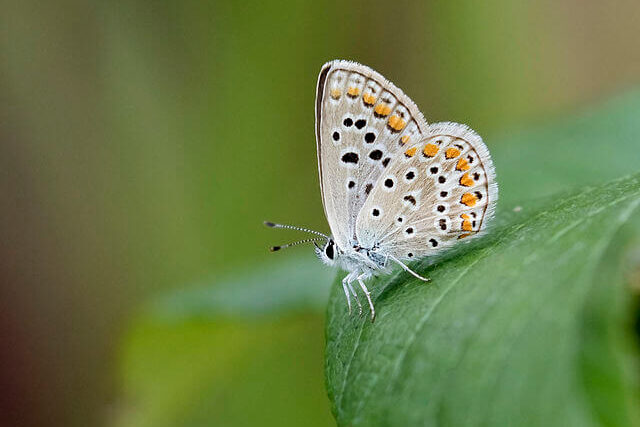
Several butterfly species struggled to flourish during the UK’s record-breaking hot summer, following historically low numbers in 2024, a conservation charity has reported.
Butterfly Conservation said the small white, large white and Jersey tiger moth were recorded in unprecedented numbers in 2025. In contrast, species such as the holly blue, common blue and meadow brown had a poor season, according to results from the charity’s Big Butterfly Count, which gathered sightings from volunteers across July and August.
The Dorset-based organisation has urged retailers to help tackle what it calls a “butterfly emergency” by taking synthetic pesticides off the shelves.
Head of science Dr Richard Fox said: “Many of our common butterfly species are facing significant pressure from challenges linked to habitat loss, climate change and pesticide use.
“We know the weather impacts their numbers and with the summer we’ve just had we should be seeing them in far greater numbers.”
This summer was the UK’s hottest on record, following the sunniest spring ever—conditions the charity said should have been favourable for many species.
More than 125,000 members of the public took part in the Big Butterfly Count, launched in Winchester, Hampshire, on 18 July and running until 10 August. The most frequently spotted species included the large white, small white, gatekeeper, red admiral and meadow brown.
The small white had its best year on record, bouncing back after a dismal 2024 marked by a wet spring and cool summer. By contrast, the small tortoiseshell—already at its lowest-ever level in 2024—remained below average and has declined by 60% since 2011, the East Lulworth-based charity said.
Overall, the average of 10.3 butterflies seen per 15 minutes was described as “only broadly average by modern standards” and insufficient to reverse long-term declines.
Dr Fox added that 15-year trends show more than twice as many widespread species have seen significant decreases as those that have increased.
He said: “There remains a need for us to take urgent action to support our butterfly populations, including improving the environment in which they live, restoring habitats and reducing pesticide use.
“Until we do these things we are unlikely to see a great recovery in butterfly numbers, regardless of how much the sun shines.”
——————————————————————————
At Natural World Fund, we are passionate about restoring habitats in the UK to halt the decline in our wildlife.

